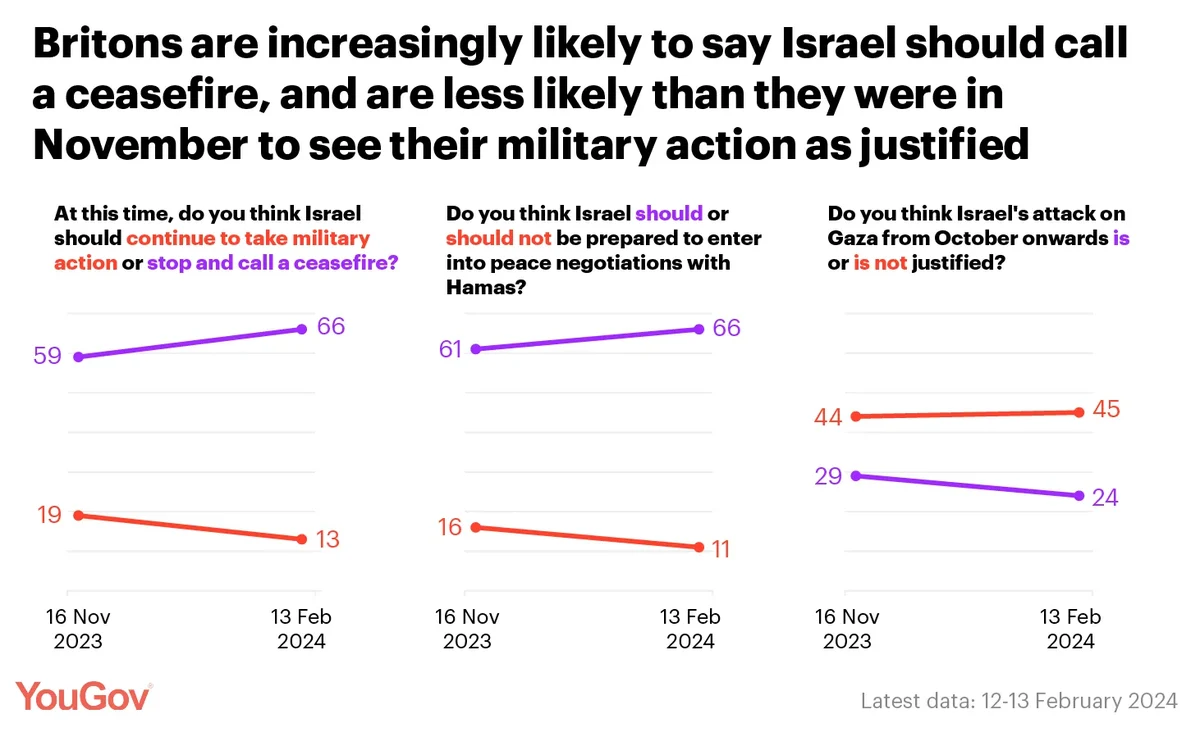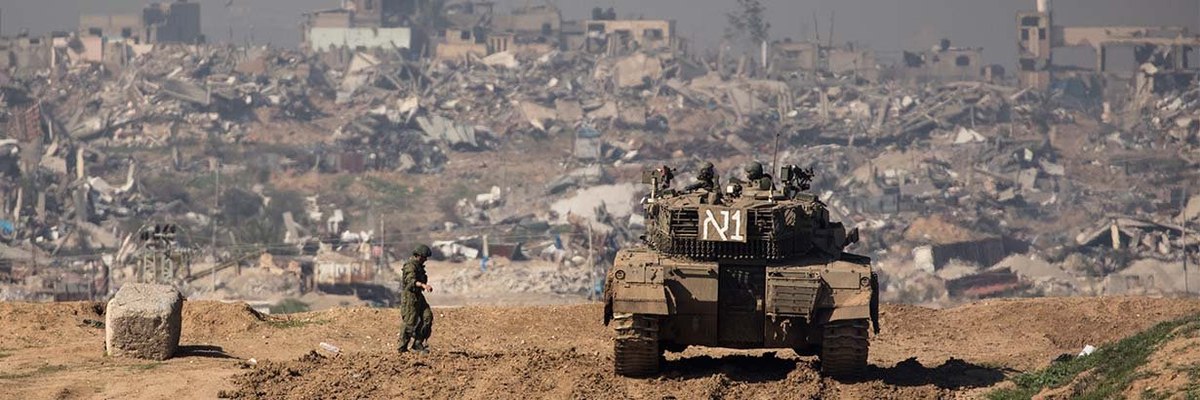The public are more likely to support a ceasefire, and less likely to sympathise with Israel
More than four months after the 7 October Hamas attacks on Israel, the conflict in Gaza continues without sign of abating.
YouGov last looked at public attitudes towards the conflict in detail in November – now a new survey sees how, if at all, opinion has changed.
Desire for a ceasefire has grown
Last week, Israeli prime minister Benjamin Netanyahu rejected Hamas’ latest offer for a ceasefire, branding it “delusional”. Now, with Israel on the cusp of a new offensive into the city of Rafah – a move which foreign secretary David Cameron has described as “deeply concerning” – public desire for Israel to stop and call a ceasefire stands at 66%, up from 59% in our November poll.

Two thirds of Britons (66%) likewise say that Israel should be prepared to enter into peace negotiations with Hamas, up five points since November.
Only 13% think Israel should continue to take military action (down six points), and there has likewise been a five point decrease in the number of people who say that Israel’s attack on Gaza is justified, down to 24%.
Britons are now more likely to say they most sympathise with the Palestinian side
When asked which side they sympathise with more, the British public are now more likely to answer ‘the Palestinian side’ than they were before the conflict began. In our latest poll, 28% say they sympathise most with the Palestinians, compared to 23% in our pre-conflict poll in May 2023 and 15% immediately following the Hamas attacks in Israel.
This is matched by a decrease in the number of people saying that they sympathise with ‘both sides equally’, now 22% compared to 31% in late November.
The number siding most with the Israelis remains largely unchanged, at 16% compared to 18% in November.
When asked how much they sympathise with each side individually, the number saying they sympathise with the Israelis “a great deal” has fallen seven points since November to 18%, matched by a five point increase in “don’t sympathise at all”.
There is a less obvious trend for the Palestinian side, with a seven point decrease in the number saying they sympathise “somewhat” (to 27%) and a four point increase in the proportion answering “don’t know”.
On a separate question asking whether people can understand the attitudes that Israelis and Palestinians have towards the conflict, we see a similar trend. The proportion of Britons who say they can understand Israeli attitudes has fallen eight points to 47%, with a four point increase in the number who say they cannot understand the Israeli mindset (to 25%).
When it comes to Palestinian attitudes, there has been a five point decline in the number who feel they can understand them, to 52%, although this movement is almost entirely to don’t know (up four points to 29%).
Belief in the possibility of a permanent peace settlement has grown
While the current conflict drags on, diplomats have started to talk about a more permanent resolution to the wider war. David Cameron has floated the possibility of UK recognition of a Palestinian state as part of peace negotiations, while the UAE – a key regional player – has made it clear that the current conflict must lead to a resolution of the entire war and the establishment of a Palestinian state.
Among the public, belief that a permanent peace deal within the decade is possible has ticked up five points to 32%.
Nevertheless, more still think a permanent peace deal within ten years is not a realistic prospect, at 39% – although this is down from 45%.
A two-state solution remains by far the most preferred outcome to the Israel-Palestine conflict
There has been no change in attitudes towards any of the potential resolutions for the conflict that we asked about.
Two thirds of Britons (65%) say they support a two-state solution, where independent Israeli and Palestinian states exist alongside each other.
By contrast, only 24% support a one-state solution, which would see a single state including both Israelis and Palestinians.
And few support the status quo (8%) or expelling one side or the other from the region (5-6%).
Photo: Getty










